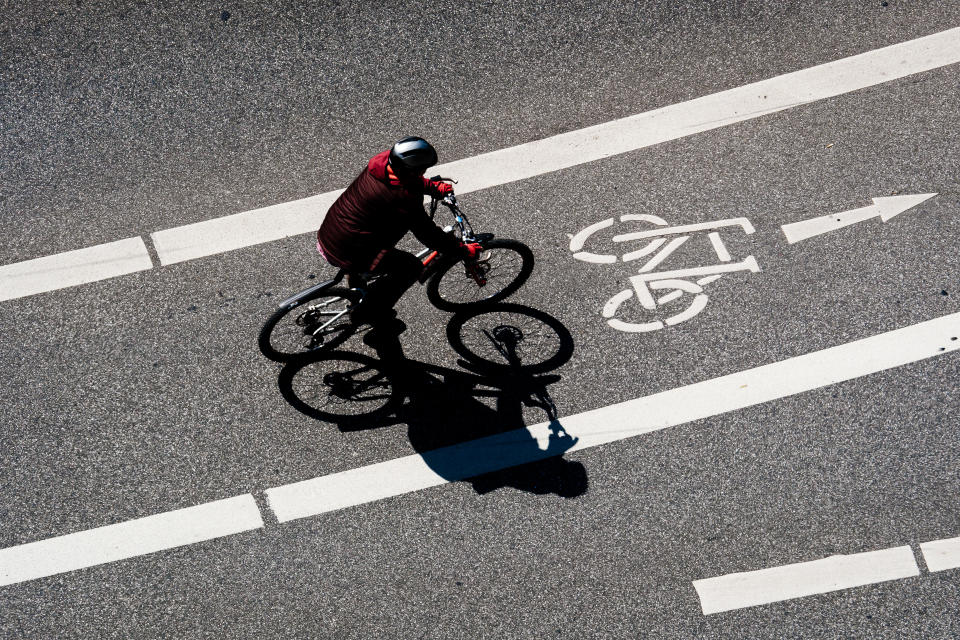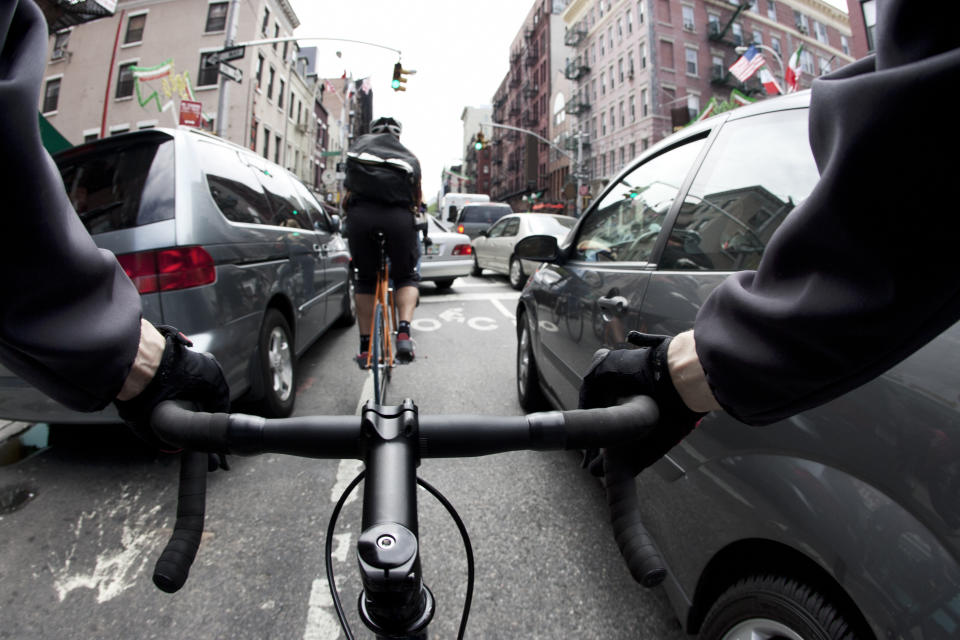The new scheme that will pay cyclists $5 each time they ride to work
A nationwide campaign to have the government pay cyclists to ride to work has been launched in a bid to increase public health, lessen the strain on traffic congestion and reduce car maintenance costs.
Riding to work could earn cyclists $5 a trip under a new scheme being spearheaded by Bicycle Network, an Australian lobby group encouraging people to ride.
Under the scheme, launched ahead of the May 18 federal election, cyclists would log each time they rode to work and the distance of their journey in the same way people claim back their travel allowance as a tax deduction.
“They would have to prove they rode to work with something like a log book,” Bicycle Network spokesman Alexander Miller told Yahoo News.
The organisation claimed research has shown society benefited up to $1.07 for every kilometre cycled, while the average commute by car cost society up to $9.30.

“Rewarding people who ride to work with a $5 bonus will encourage even more people to swap out cars for bikes. Keen bike commuters who ride every day could earn up to $1100 a year, while also saving on car and petrol costs,” a statement released by the organisation said.
According to the Australian Automobile Association’s latest figures, an average Australian family spent more than $18,000 per year on running a car, whereas a bike cost less than $400 annually.
Bicycle Network CEO Craig Richards argued pay-to-ride tax schemes were already running successfully in Italy, The Netherlands and the UK.

Ride to work funding could take 50,000 cars off the road each day
mean “The growing cost of living is hurting everyday Australians. At the same time, we’re wasting our days stuck in traffic as congestion chokes our cities and economy,” Mr Richards said.
He added the schemed presented a “perfect opportunity for electoral candidates to get themselves elected by doing something that will benefit Australians today and in the future”.
The network said if the scheme was adapted it could result in a reduction of between 20,000 and 50,000 motor vehicle across the country every day.
The scheme was not forecast to cost the federal government more than $500 million each year, while bringing a benefit of the same amount or more.
The proposal, announced on Thursday, was met with both support and backlash, with some arguing in favour of a healthier country, and others slamming it over concerns it would increase road accidents.

“Sounds like a great idea, but how do you show/prove you rode to work? Seems very open to rorting the system,” a social media user wrote on the network’s Facebook post.
“Don’t support this at all! it would actually lead to death and injuries- many poor and working class people don’t have access to safe cycle routes in the outer suburbs where they live and work,” another said.
Someone else argued it was existing bikes on the road causing problems, “If there were fewer bikes on the road then I’d get to work quicker, they always slow me down and they keep catching up to me at every light, so they slow me down constantly.”
Do you have a story tip? Email: newsroomau@yahoonews.com.
You can also follow us on Facebook and stay up to date with the latest news with Yahoo’s daily newsletter. Sign up here.



